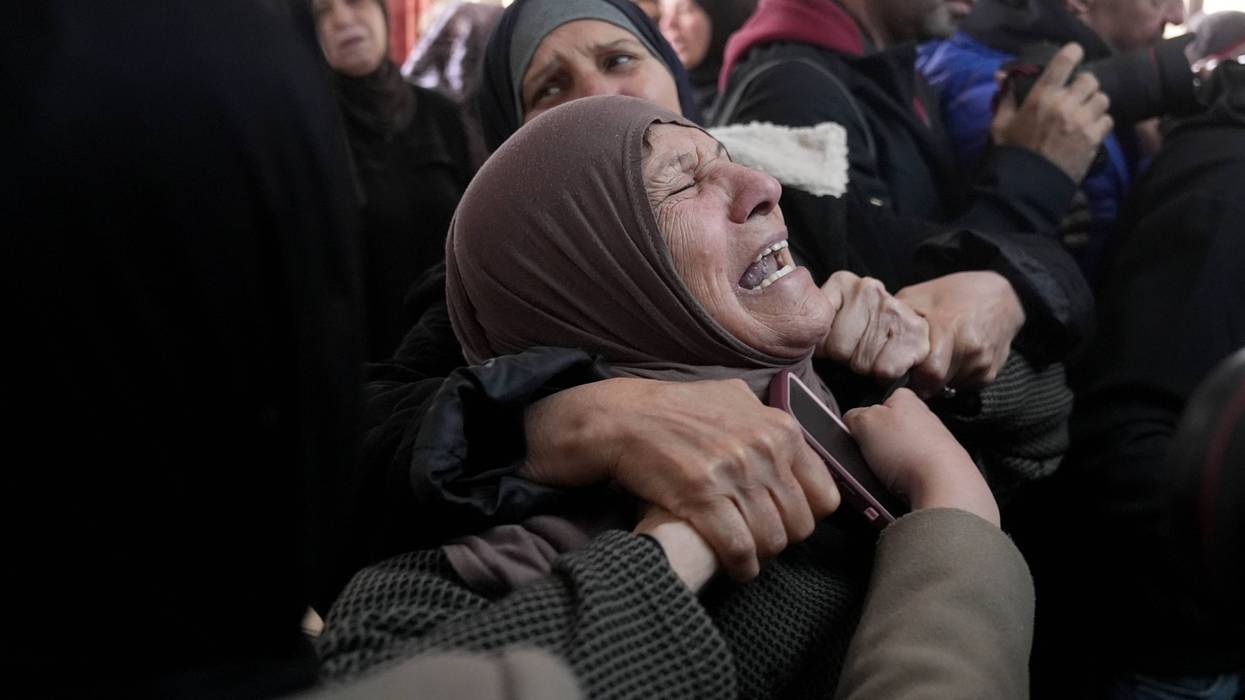Security sources familiar with the case described it as "highly unusual," as chartering a private jet to Israel costs about $300,000—vastly more than the commercial jet travel that the US government typically uses for deportations.
But the Guardian and +972 have learned that the jet, which carried another set of Palestinian deportees to be dropped in the West Bank on Monday, is owned by Trump's longtime business partner, the Florida real estate tycoon Gil Dezer.
Dezer and his father, the Israeli-American Michael Dezer, have collaborated with Trump on six different residential towers in Miami and have donated at least $1.3 million to Trump's presidential campaign, according to campaign filings.
The jet was found to have been chartered by US Immigration and Customs Enforcement (ICE) through the Florida-based company Journey Aviation. Before it dropped Palestinians off in Israel, the group Human Rights First determined that it had been used for at least four other "removal flights" to Kenya, Liberia, Guinea, and Eswatini.
US officials did not answer questions about how much money they paid to charter the flights, but aviation industry sources told the outlets that chartering the two flights to Israel would probably cost between $400,000 and $500,000.
Maher Awad, a 24-year-old Palestinian man who was deported, said the men were carried on Dever's plane with their arms and ankles shackled after being taken out of a notoriously squalid ICE detention hub in Phoenix, Arizona.
When they arrived at the checkpoint, he said, “they dropped us off like animals on the side of the road.” All he had to show Israeli authorities was his Michigan driver’s license.
The men went to a house near the checkpoint, owned by a university professor named Mohammad Kanaan.
Kanaan said the men stayed at his home for about two hours. During that time, he learned that many of them had been in ICE detention for so long that some of them were considered missing.
“Their families were so happy to hear their voices,” he said. “One mother started screaming and crying over the phone.”
According to the outlets, the flights were "part of a secretive and politically sensitive US government operation to deport Palestinians arrested by ICE to the Israeli-occupied West Bank."
The Trump administration has aggressively targeted Palestinians for deportation, stripping legal status from hundreds of people who have protested or otherwise expressed solidarity with Palestinians amid Israel's two-year genocide in Gaza.
972+ reported that several of the deported men have held green cards in the United States. Many had wives, children, and other family members living there.
Awad, who had lived in the US for nearly a decade, was taken away from his girlfriend and his newborn son in Michigan. “I grew up in America,” he said. “America was heaven for me."
“I was feeling safe and secure in the United States until ICE arrested me," he said.
The secret deportation program has shocked many immigration attorneys, who described it as highly unusual and potentially illegal for the US to deport Palestinians to the West Bank, where they face systemic persecution and violence from Israel's occupation.
In recent weeks, state-sanctioned Israeli settler violence has exploded. In the three days following the first deportation flight, the United Nations Office of the High Commissioner for Human Rights (OHCHR) reported that "at least 10 serious Israeli settler attacks were recorded" in the West Bank, resulting in "extensive property damage, arson attacks, injuries, and forcible displacement of Palestinian families."
“Aside from the many irregularities with the deportation of eight Palestinians on a private jet and no due process, this transfer also violates the principle of nonrefoulement, which prohibits the forcible return of individuals to a country where there are substantial grounds for believing that the person would be at risk of irreparable harm upon return, including persecution, torture, ill treatment, or other serious human rights violations,” Gissou Nia, director of the Strategic Litigation Project at the Atlantic Council, told +972.
"The United States is bound by international treaties that explicitly prohibit this, including the Convention Against Torture,” she continued. “Therefore, the US violated this principle in sending Palestinian asylum seekers and Palestinians with other statuses back on a flight to Israel, where they face persecution."




